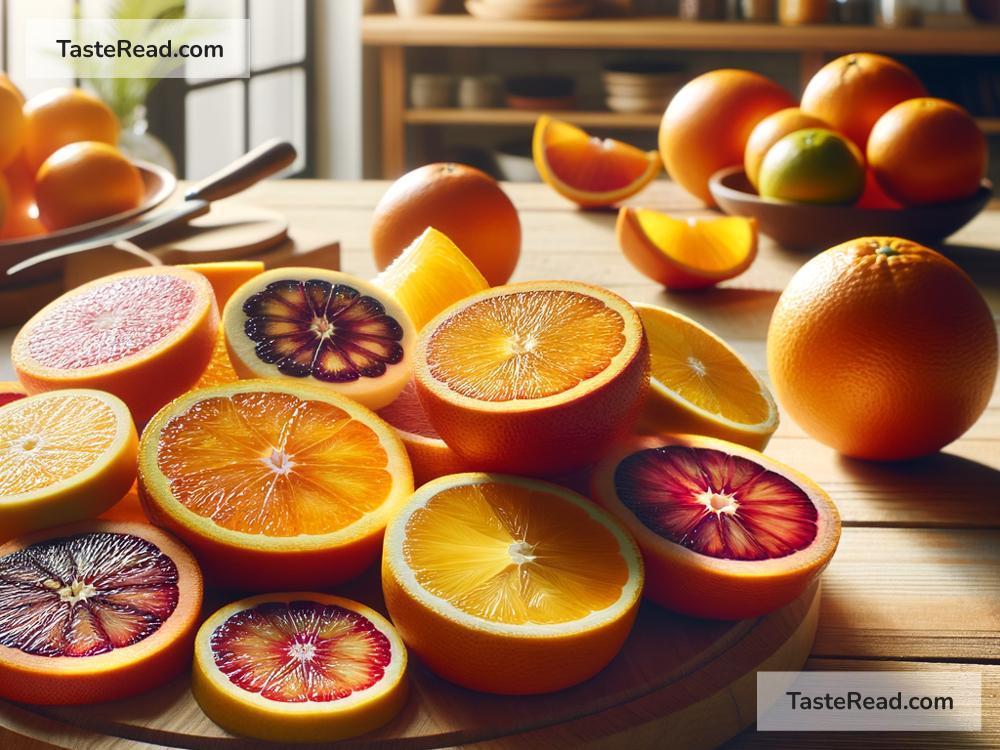Why Fruits Like Oranges Have Varying Levels of Sweetness Depending on the Variety
Have you ever wondered why some oranges taste super sweet while others are more tangy or sour? You might have picked up a bright orange fruit expecting a sugary burst, only to bite into something less sweet than you hoped. The truth is, not all oranges (or fruits in general) are created equal. Their sweetness depends on a variety of factors, including their variety, growing conditions, and ripeness. Today, we’re breaking down the reasons why oranges and other fruits can have different levels of sweetness.
1. Different Varieties of Oranges
One of the biggest reasons for varying sweetness in oranges is the type, or variety, of orange. Just like roses come in different colors and forms, oranges come in several varieties, each with a unique flavor profile. Here are some examples:
- Navel Oranges: These oranges are sweet and juicy, making them popular for eating fresh. They tend to be less acidic than other types, which enhances their perceived sweetness.
- Valencia Oranges: These are known as “juice oranges” because of their high juice content. While they are still sweet, they often have a slightly tangy note as well, making them balanced in flavor.
- Blood Oranges: Blood oranges have a deep red flesh and a distinct flavor that’s often described as sweet, but with hints of berry or tartness.
- Mandarins and Clementines: These small, easy-to-peel oranges are typically much sweeter than traditional oranges, making them a favorite for kids and those with a sweet tooth.
Every variety has its own balance between sweetness and acidity. Some were bred specifically to be sweeter, while others were designed for their tangy flavor, ideal for marmalades or garnishes. So when you grab an orange, its variety plays a major role in dictating its taste.
2. Natural Sugar vs. Acidity
The sweetness of an orange depends on the balance between two key components: natural sugars and acidity.
- Sugars: Oranges (like most fruits) naturally contain sugars, such as glucose, fructose, and sucrose. These sugars are responsible for the sweetness you taste.
- Acid: Oranges also contain citric acid, which gives them their tangy flavor. The more citric acid an orange has, the less sweet it will taste—even if it has a high sugar content.
Different varieties of oranges have different levels of these sugars and acids. For example, mandarins usually have less citric acid, which is why they taste sweeter than regular oranges. On the other hand, certain varieties, like Seville oranges, have high acid levels and are often too sour to eat raw. They’re best used for making marmalade.
3. Growing Conditions
The environment where oranges are grown affects their sweetness too. Here are some factors that come into play:
- Sunlight: Oranges need plenty of sun to develop their natural sugars. A tree that grows in a sunny, warm climate will likely produce sweeter fruit than one grown in a cooler, less sunny area.
- Water: Too much water can dilute the sugars in the fruit, making them taste less sweet. On the flip side, if the tree doesn’t get enough water, the fruit might turn out smaller and more concentrated in flavor—and that could mean sweeter oranges.
- Soil Quality: Healthy soil packed with nutrients helps orange trees grow better and produce tastier fruit.
- Temperature: Cool nights and warm days help fruits develop a sweeter flavor. That’s why oranges grown in regions like California and Florida tend to taste better—they enjoy just the right weather conditions.
4. Ripeness at Harvest
The timing of when an orange is picked affects its sweetness. Oranges ripen on the tree, gradually developing more natural sugar and reducing acidity over time. If an orange is picked too early, it might still be very acidic, resulting in a tangy taste.
On the flip side, if left on the tree for too long, oranges can become overly sweet and lose their vibrant flavor. Farmers carefully decide when to harvest oranges based on their sugar-to-acid ratio and the desired taste profile.
5. Storage and Transportation
After oranges are picked, how they’re stored and transported can also impact their sweetness and overall flavor. Oranges stored for a long time might lose some of their natural sweetness as their sugars break down. That’s why fresh, local oranges often taste better—they haven’t spent weeks sitting in storage or traveling long distances.
6. Your Own Taste Preferences
Finally, don’t forget that your personal preference plays a role too! Some people enjoy sweeter flavors, while others might prefer an orange with a bit more tartness. The “perfect orange” for one person might be too sour or too sweet for someone else.
Conclusion
The next time you bite into an orange and wonder why it’s sweet, tangy, or somewhere in between, remember that there’s a lot happening behind the scenes. The variety, growing conditions, timing of harvest, and even storage all influence how an orange tastes. By learning about these factors, you can make more informed choices the next time you’re at the store—or even grow your own citrus tree!
Sweet or tangy, oranges are a delicious and versatile fruit that’s enjoyed around the world. Understanding the reasons behind their varying sweetness makes them even more fascinating and enjoyable to eat.


